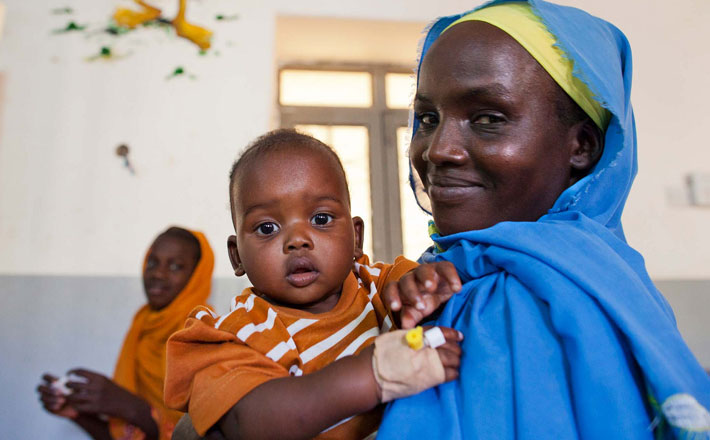Commentary on Deuteronomy 34:1-12
When death separates us from the people we love, it allows us to forge new connections, often in startling and unexpected ways.
And so it is with the story of Moses’ death. In some respects, the story is the last in a series of separations. Though Moses is central to the story of Israel’s deliverance, this story keeps him firmly on the margins, a liminal figure bringing Israel into its full covenant identity but never quite sharing it with them.
We have seen hints of this all along. His name is, after all, an Egyptian name. And throughout the narratives of the deliverance from Egypt and journeys in the wilderness, at times both Moses and YHWH speak as if neither is entirely willing to claim the Israelites as their own (see especially Exodus 32). The Israelites are similarly ambivalent, if not downright rebellious, wondering what on earth God had in mind when he led them out of Egypt and also frequently complaining about Moses’ leadership. One can read the story as a series of estrangements. Yet in the end, when Moses is left behind in an unlocatable grave on the wrong side of the Jordan, the bonds become stronger in memory than ever they were in life.
The story of Moses’ death would seem to mark a decisive separation once and for all, as Moses dies and is buried by God in the wilderness while the Israelites press forward into the land of promise, now fully united with God in the covenant mediated by Moses. Moses is the odd one out. Though Moses had pleaded with God for the opportunity to cross over into the land, God refused, and finally put an end to Moses’ entreaties: Enough! Speak no more to me about this matter! (Deuteronomy 3:26). Though God would allow Moses to see the land from the mountains of Moab, he would not permit him to cross over into the land.
Yet Moses’ death also discloses a mysterious bond with the Israelites, in the sense that his death marks a sharing in their own suffering and punishment. Since the book of Deuteronomy is Moses’ farewell address, it should not be surprising that it speaks so frequently of his impending death. At the same time, it is somewhat surprising to discover its divergent explanations for his death outside the promised land, as if the explanations of his fate were never entirely satisfactory.1 Deuteronomy 32:48-52 alludes to the more familiar priestly account which links his death in the wilderness to the episode at Meribah when Moses broke faith with God (Numbers 21). But a second explanation is given in Deuteronomy 3, almost as if to displace this more familiar story. Here Moses tells the people that God has forbidden his entry because “the Lord was angry with me on your account” (Deuteronomy 3:26).
God’s prohibition paradoxically binds Moses to the first generation in punishment while separating him from the second in their inheritance of the land. Up to this point in Moses’ recital of their journey through the wilderness, Moses had told the story as a shared story. Using the first person plural, he forged connections with the second generation by invoking a memory of their parents’ generation: This is what we did here, and here, and here. But from the point that YHWH categorically prohibits his entry into the land, Moses addresses them as other, as “you”: this is what you shall do when you enter the land. Ever the servant, Moses completes the work of binding the future Israel to God even as he is destined to take his leave of them.
That separation is underscored in this final episode in Moses’ life. After he has ascended the mountain and has been shown the full extent of the land, the Lord pointedly tells Moses that it is for others. The speech is reminiscent of Abraham’s first sight of the land: “This is the land that I swore to Abraham, Isaac and Jacob, saying, ‘I will give this land to your descendants,’ but you shall not cross over into it” (Deuteronomy 34:4). The differentiation is jarring, as if Moses simply did not count as one of Abraham’s descendants.
Yet, even as Moses is separated from the Israelites in death, he becomes present to them in memory. Moses dies, not quite alone, but in the presence of YHWH who buries him in an unknown location in the valley of Moab. The people complete the full period of mourning, and even though Joshua steps in to lead them, the narrative pauses to commemorate Moses’ uniqueness.
Curiously, what is celebrated is not his character or his heroism, or even his faith. What is important is that he was the one whom God knew face to face, and through whom God performed such signs and wonders. In memory, then, Moses remains the one through whom God became fully known. Though he appears to be excluded, he is the key to their memory of God’s mighty acts of deliverance, and therefore of their ongoing covenantal relationship. In memory, then, Moses remains the glue keeping Israel and God together.
Today’s gospel reading affirms the continuing importance of Moses’s work on behalf of Israel long after his death. Jesus’ argument with the Pharisees is not whether the Torah is valid, but in what way it is to be fulfilled. For Jesus, it is not a matter of picking and choosing among the commandments, but of understanding that the entire Torah bends toward the love of God and neighbor. In this story of Moses’ death, we see that love clearly, in Moses’ self-giving love for Israel, in God’s care for Moses at his death, and, finally, in Israel’s loving memory of Moses as the one who surpassed all others in bringing God near.
Notes
1. Patrick D. Miller, Deuteronomy (Interpretation: A Bible Commentary for Teaching and Preaching; Louisville: John Knox Press, 1990), 243.


October 29, 2017